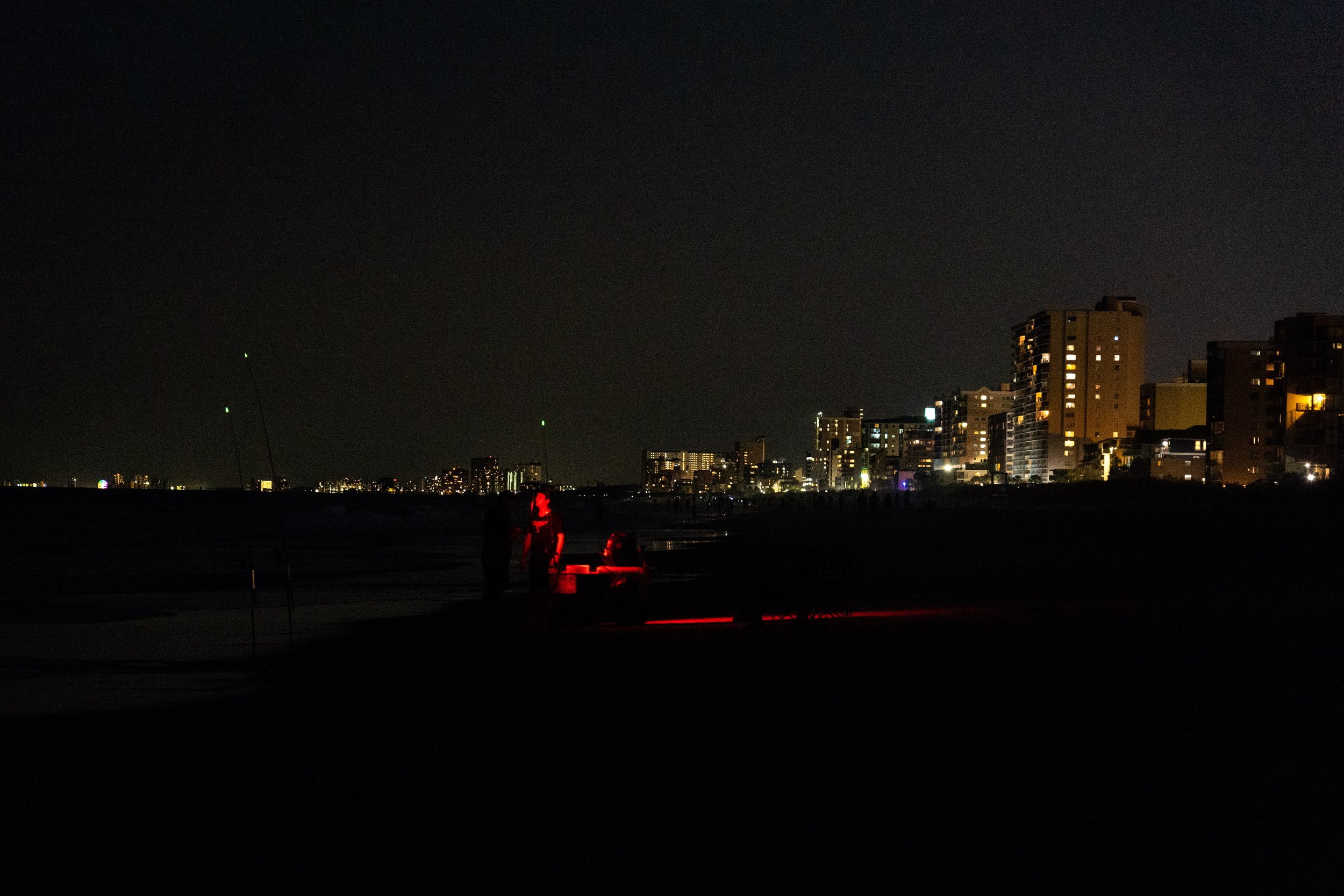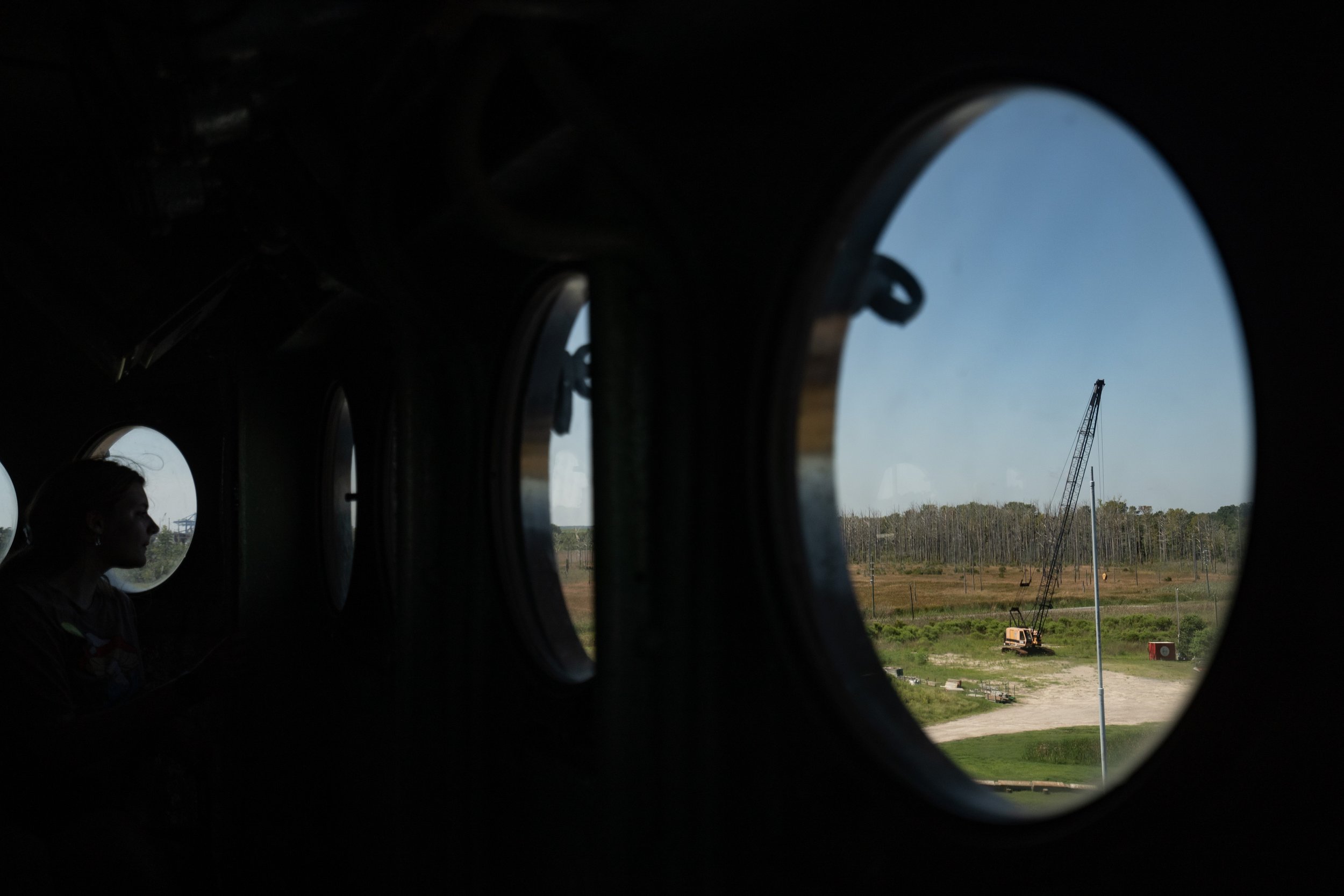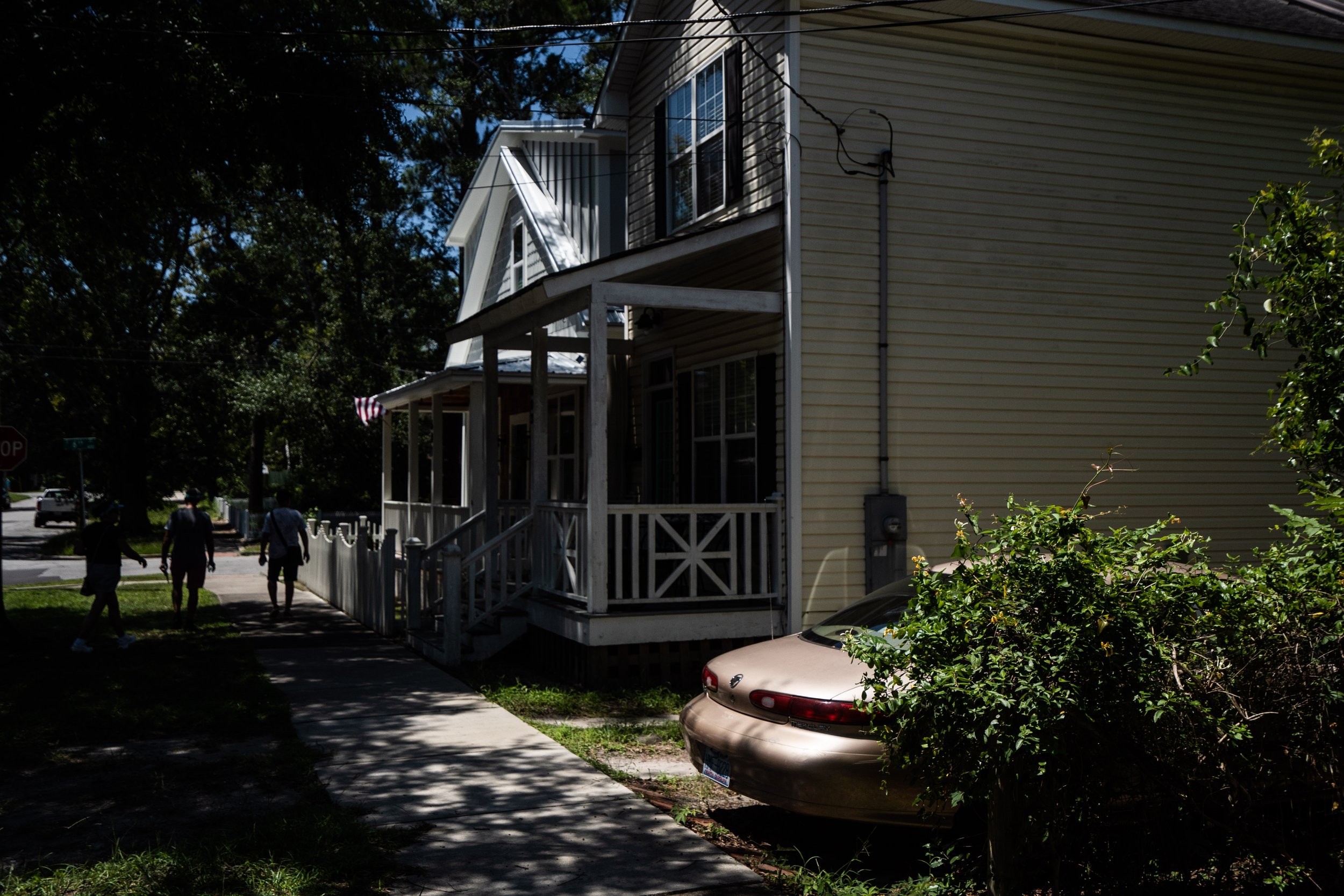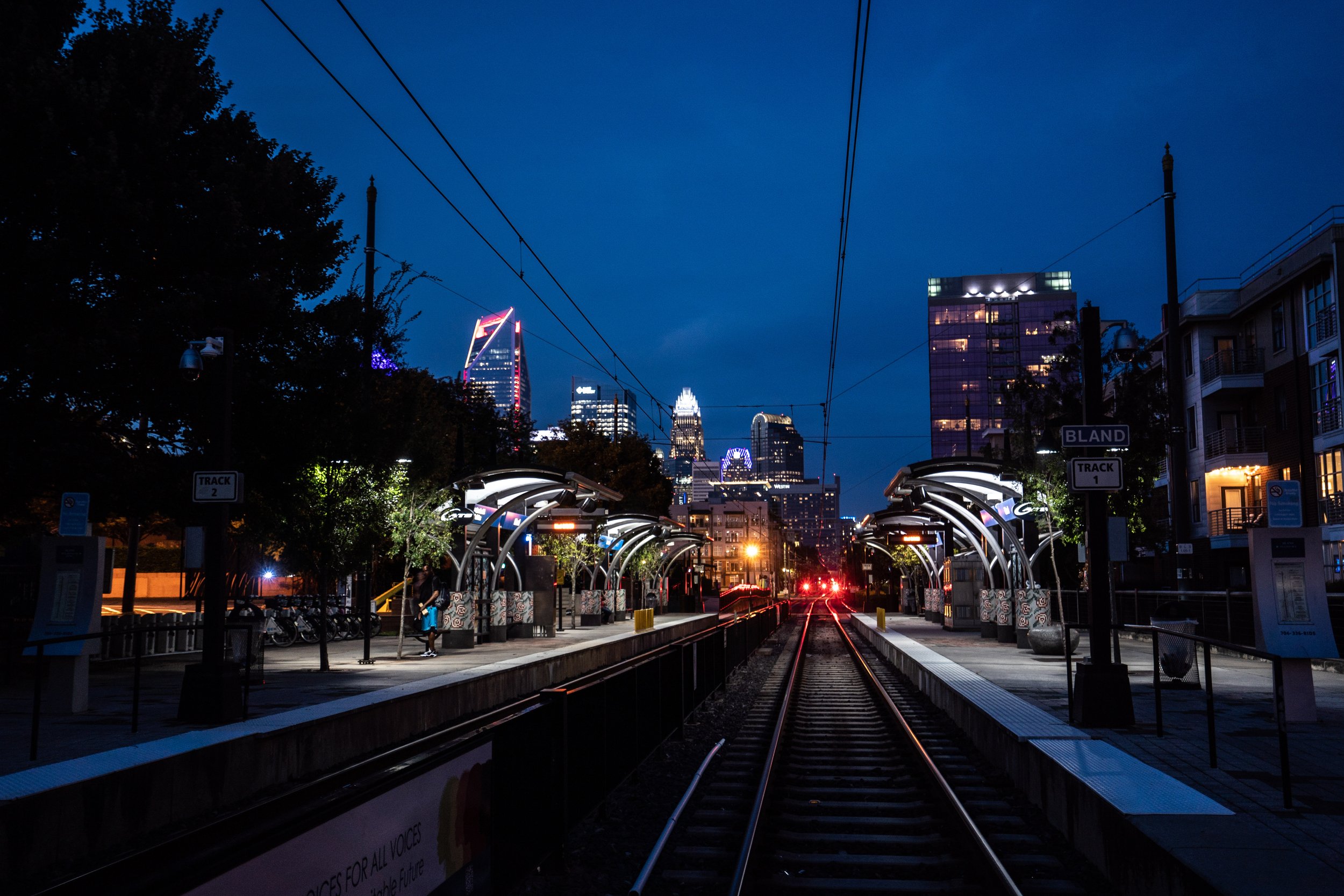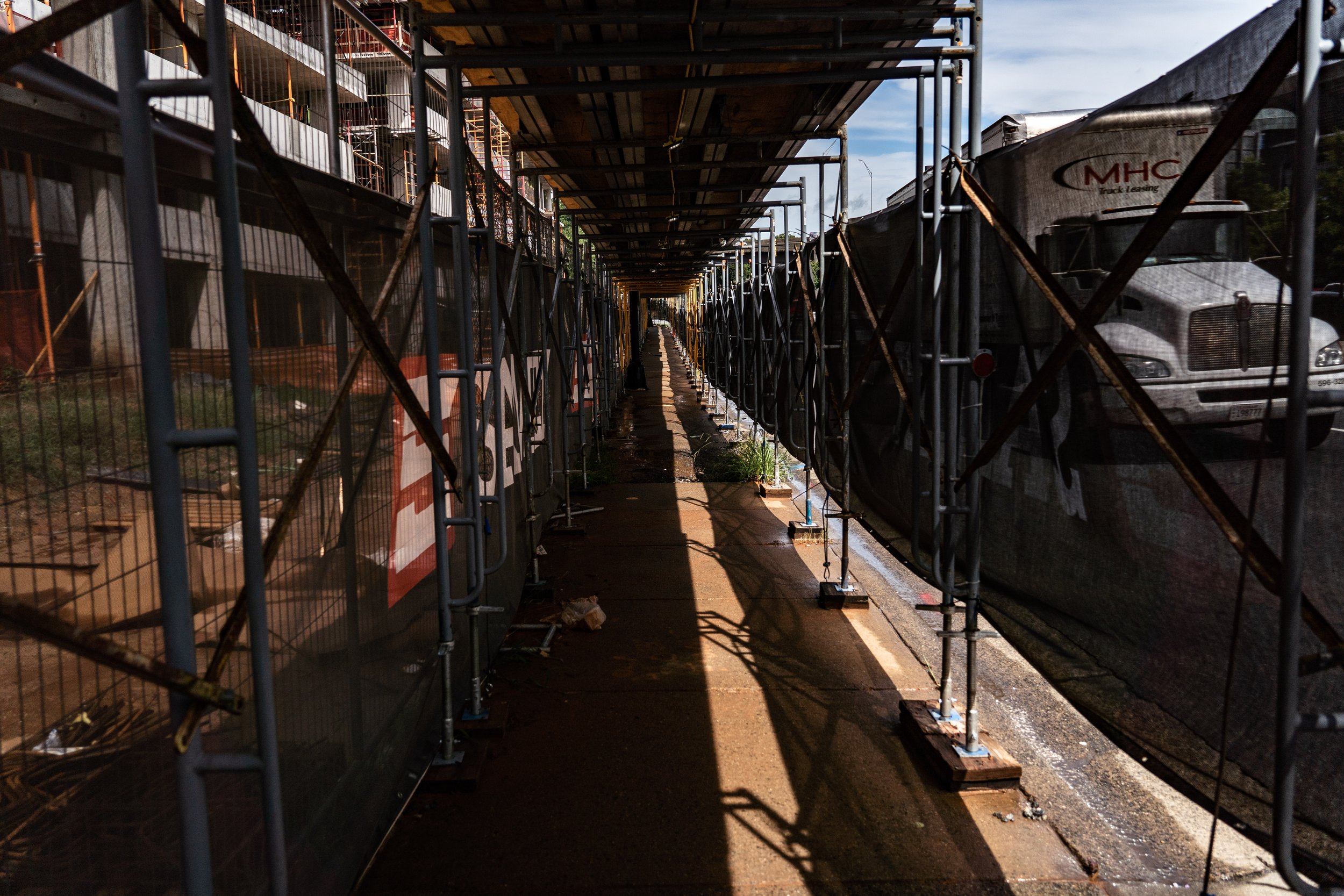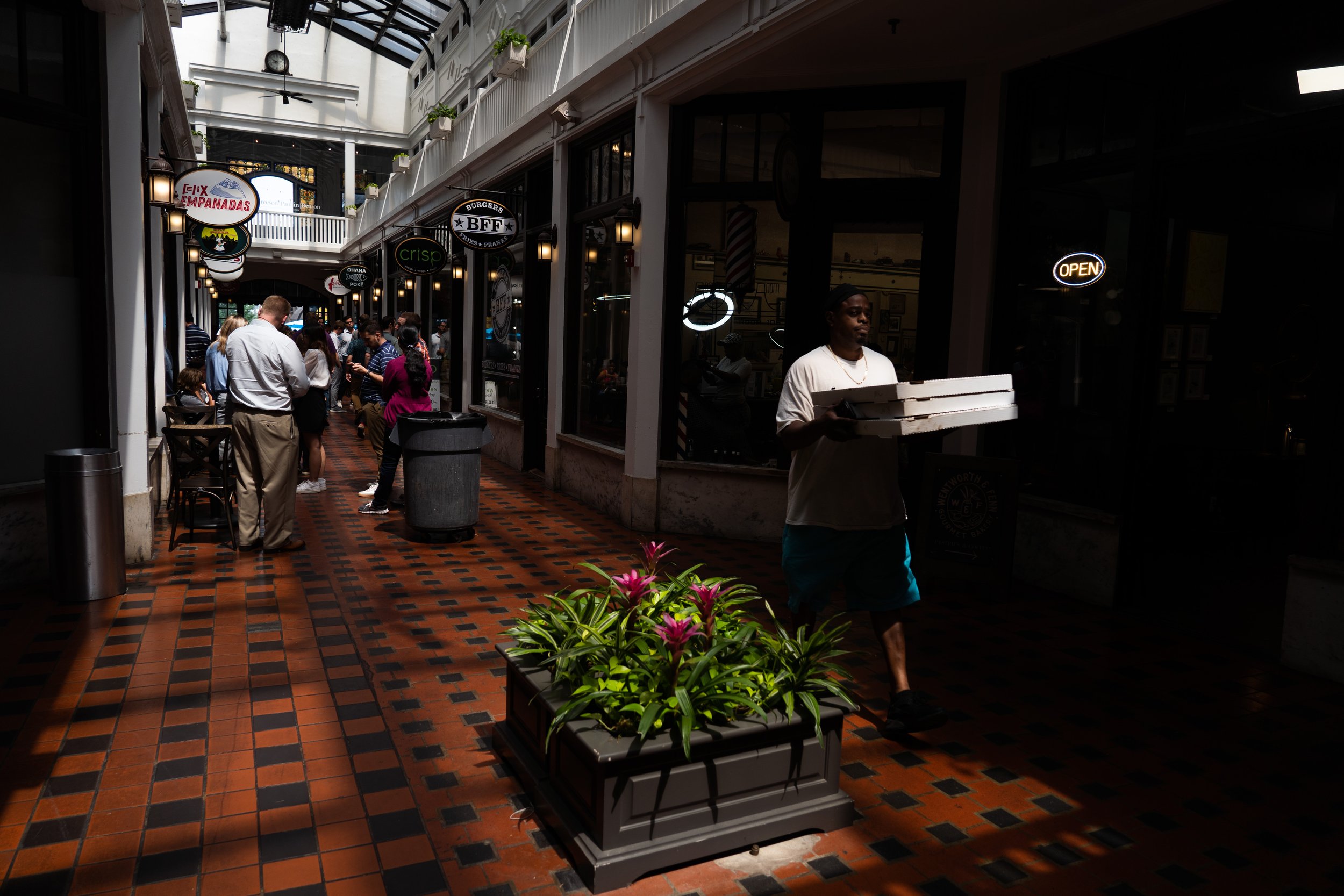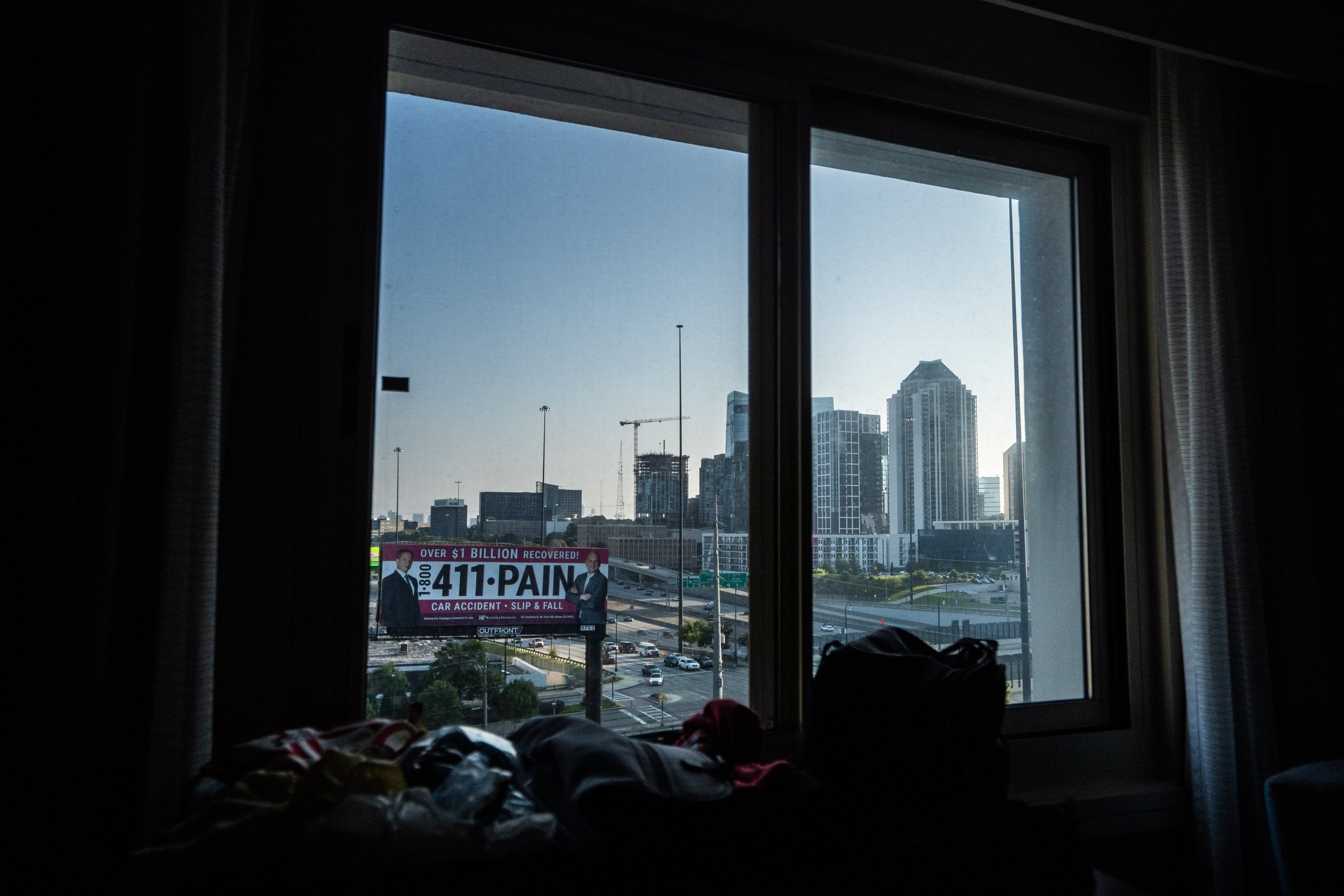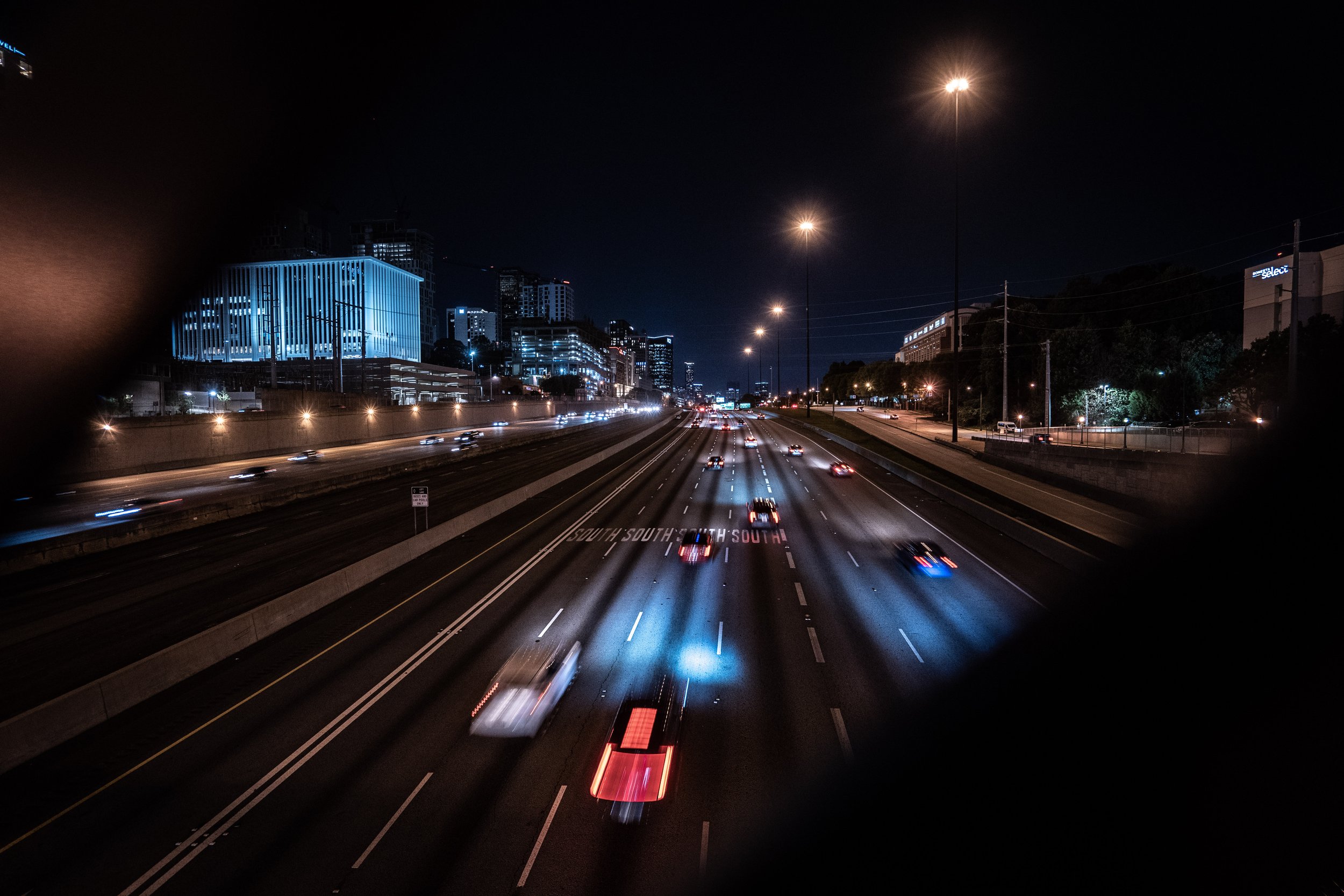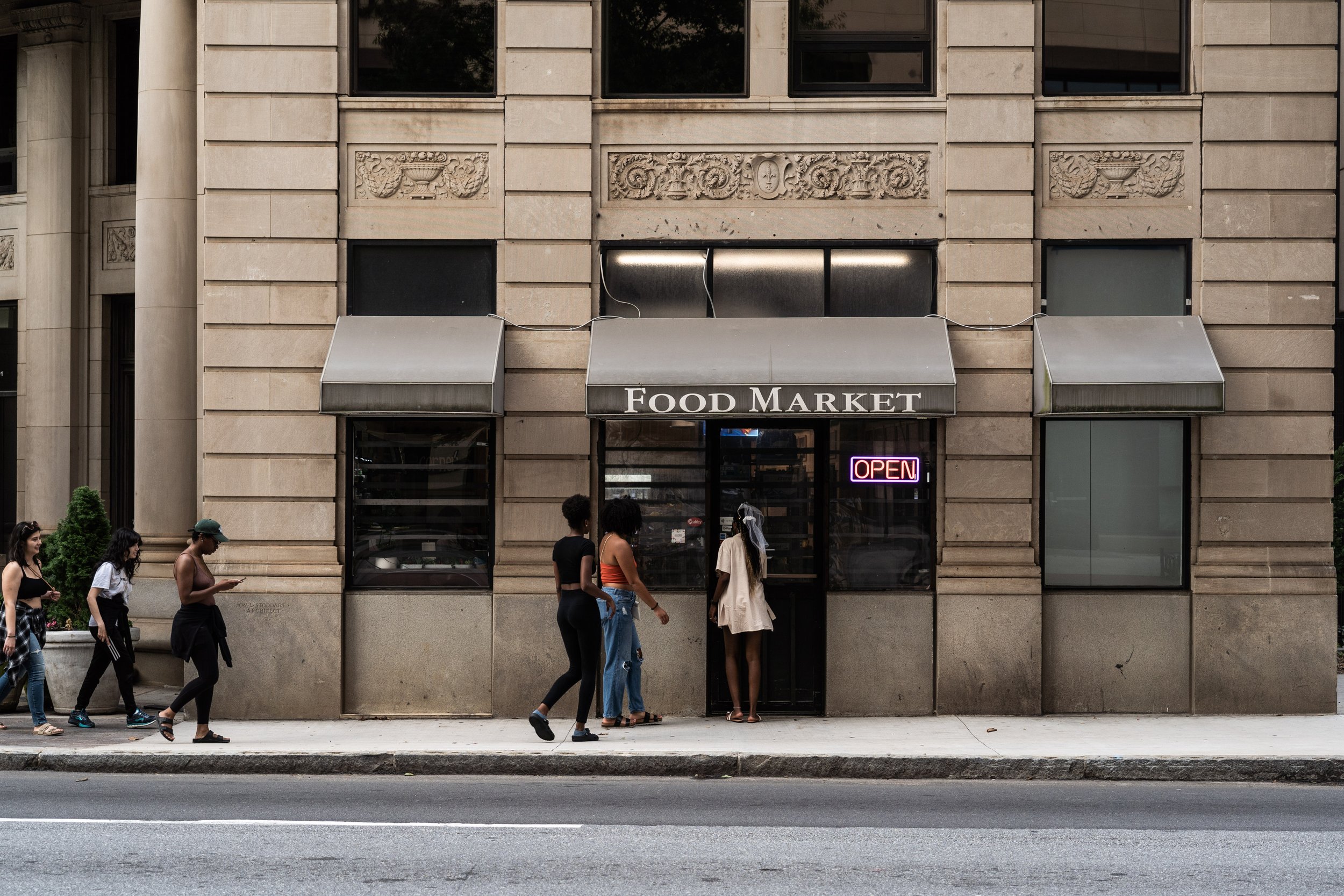A Personal Travel Essay And Long Brewed Thoughts On The Nature Of America
I've returned to the US for the first time in five years, and I find myself reflecting on my complex relationship with this country. Growing up, I was captivated by shows on the Discovery Channel, like "American Chopper," "Overhaulin'," and "West Coast Customs." While I loved the cars, it was the brief cut-scene clips that intrigued me most. They seemed to provide real-life glimpses into America, albeit in fleeting moments that demanded close attention. These glimpses fueled my curiosity about what life in America really feels like.
At 15, my parents generously offered me the chance to spend a year in the United States as an exchange student, and I accepted without hesitation. At the time, anti-American sentiments were influencing me, and I became skeptical of what I would experience. Nevertheless, I remained curious and excited. That year proved pivotal for my personal development, shaping me in ways that are hard to articulate, but in the most positive sense. Interestingly, I left the United States with the realization that life there wasn't much different from life in Slovakia. While there must have been stark differences in the past, particularly when Slovakia was primarily rural or newly liberated from communism, by the time of my visit, the contrasts were subtle.
Toward the end of my exchange year, some aspects of America frustrated me, yet the country somehow got under my skin and stayed with me. I care about America, and as the years passed, I began to miss it.
Whether by intuition or luck, I met an American student in college and fell in love with her. This relationship allowed me to spend time in the U.S. again, and I was particularly drawn to New England. The nature and weather resonated with me, and I enjoyed visiting New York. I even considered pursuing my master's in the US and living there for a few years. However, I ultimately left with the feeling that, as an Eastern European, I might never truly fit in and would always have to work twice as hard to prove my worth to American society.
These experiences held immense value for me. I discovered my love for living in Europe, being close to my family, and enjoying the familiarity of my region. They often say there's no place like home, and I found that to be true.
I also realized that I would inevitably start to miss America and feel a need to return to understand it more deeply. Over and over again, this feeling would hit me, though I can't quite explain why. Additionally, there was a closure I sought. For years, I had wanted to go back and see my host families at least one more time. The thought of never seeing them again was unbearable, as I had formed a significant bond with them during an important part of my life. Whether or not they felt the same, I knew I would return.
Time flew by, and suddenly I realized that it had been 9 years since I left North Carolina, the place of my exchange year. The idea that 10 years had almost passed—a whole decade, nearly half my life—hit me hard. I knew I had to return before reaching that double-digit milestone. While it may have been an irrational reason, psychologically it felt essential. I was afraid that after 10 years, my host families might forget me, and my time with them would become a fleeting memory, like a dream forgotten by morning.
So I took charge, found the dates and flights, and booked the tickets. My dad said he would join me, which was exciting but also nerve-wracking. I knew the responsibility of planning and executing the trip was on me, so I prepared better than for any other journey.
Finally, the date of departure arrived, and we were already enjoying beers before our 11 am flight. Airport time is relative and fluid, after all. Travelers flying in from Asia might think it's 5 pm, and what kind of traveler would I be if I couldn't embrace foreign mindsets? Both of us were a bit anxious about getting to the hotel from the airport, going through customs, and most importantly, how we would be welcomed.
When we reached the hotel, it was an underwhelming experience; it smelled and looked bad, but we were too tired to care.
We headed to the airport the very next day to rent our car, catching a hotel shuttle to the domestic terminal. Once there, we boarded a special Sky Train that connects the airport to the rental car center. Though I may describe it casually, it was a thrilling experience. We were at the busiest airport in the world, and the immense infrastructure matched its reputation. From the train, we could see enormous facilities resembling small towns, designed for washing cars and featuring a colossal gas station.
The rental car center essentially consisted of tall parking structures bustling with vehicles coming and going. After presenting our reservation, we were directed to a specific level. A representative instructed us to choose a car from section two, where we found about 25 options. We could simply hop into a car and drive off. Options included pickups, Mustangs, and Chargers, but we chose a standard sedan for its mileage and because, quite frankly, I was afraid of damaging one of the more expensive vehicles.
We then headed onto a roughly five-lane road leading us out of Atlanta, awestruck by the impressive infrastructure, especially since we come from a country that has struggled to complete even a single cross-country highway.
As we drove through the South Carolina countryside, we were struck by the number of small and impoverished homes where we couldn't imagine living.
Arriving at Myrtle Beach, one of the most popular coastal areas in the US, we were exhausted from the six-hour drive. Reuniting with my first host family, who had moved since I've last seen them, felt as if I had seen them only a week earlier rather than after many years of minimal contact. The experience was more stressful for my dad, whose English is less practiced.
We went to the beach and just hung out. It felt so good to see everybody.
The next day, we took a trip to Charleston, one of the few places in America that have maintained their historic core. The buildings are still mostly original, dating to the 18th and 19th century, and the city has a really nice atmosphere.
The ride from Myrtle Beach took over two hours, and I ended up in the flip-out seat in the trunk of an old Acura SUV. It made me appreciate the little legroom you get in an economy seat on a flight. The "kids" (all adults of my age and older) and I were spotting cop cars, finding words around the highway in alphabetical order, doing anything to keep ourselves entertained along the drive.
It was a hot day, and since I'm on the larger side, I sweated like bacon on a grill. Thankfully, my host dad Nick had reserved a horse carriage ride around town. I normally don't go for these touristy attractions, but it was so warm that walking around the city for a long time would have been difficult. Poor Leo, the horse, had to endure the high temperatures.
Since there are many horse carriages in the town, an old machine produces a ball in one of three colors for every party that leaves the base for a tour. This ball determines the exact route the tour will take, so individual routes aren't crowded.
Our tour guide was an older lady who had divorced her husband early after retirement. To make some extra cash, she started leading tours in Charleston, and she's been at it for 17 years. We learned this within the first five minutes of an hour-long journey. Imagine how talkative she was!
Interestingly, among all the information she shared with us, there wasn't much talk about the town's black history. Most of the beautiful buildings we looked at were built by slaves for their owners. Charleston was also the biggest slave port in the US. Not too many slaves were actually sold in the city itself, but they were forced to march to other towns instead, to be sold at auction houses.
Even before arriving here, I knew that the key to understanding the South and its past is through studying slavery and black history. After a day at the beach, I took this agenda to Wilmington. A white supremacist coup had been orchestrated here in 1889, and a Pulitzer Prize-winning book named "The Wilmington Lie" has been published about the events. I'd listened to this book in the past and knew that I had to visit Wilmington.
North Carolina's port town is guarded by a WW2 warship, which gives the scenery an interesting aesthetic. We went on a tour of the ship before heading to the historic district.
Honestly, it was interesting. And although I find America's fascination with the army is deeply ideological, I just had to respect it, since the national security of my country depends on these guys.
We drove to the historic district of Wilmington and found a spot where we could sit in the shade and eat our lunch sandwiches.
I had a black history self-guided walking tour downloaded on my phone and used this opportunity to read the introduction. It read:
Slavery came to the area with permanent settlement in the mid-1720s. Many of the early immigrants came from the South Carolina Lowcountry and brought slaves with them as they established plantations along the Cape Fear. Few came directly from Africa. In addition to South Carolina, many arrived from the sugar plantations of the Caribbean. Many early enslaved Africans entering North Carolina marched from Norfolk and Charleston.
During this time, rice was the region's second ranked commodity. Many of the early settlers from the Charleston area grew rice. To overcome Cape Fear's challenging terrain, sophisticated systems of canals and gates had to be designed and monitored to ensure the proper flooding and draining cycles needed for successful harvests. Rice has been grown in West Africa for 3 three thousand years and slave-traders targeted tribes from that area for their rice-growing expertise.
Following the various stops, we were led away from the easily recognizable buildings by the riverside. As excited as I was, I couldn't help but notice the difference in the condition of these historical sites. Most were either falling apart or didn't exist anymore. It's safe to say that buildings reflecting white history have been better maintained.
Due to the intense heat and our parking ticket running out, we didn't have the chance to complete our tour. From what we saw, Wilmington was beautiful and certainly deserved a more thorough walkthrough. The old houses are extremely cute, and I can imagine that walking through the historic neighborhoods must be magical in the fall.
Once we returned to our car, I was sweltering from the heat. It didn't help that I was already sunburned from playing putt-putt and beach games the day before. We had to stop and get some cold beverages before continuing on to Raleigh.
By the way, when traveling through America, I'm always fascinated by the number of pickup trucks this nation seems to need. Some were not far off from monster trucks.
We made it all the way to Raleigh that day. As we went out for a walk, hoping to find dinner, a police drama unfolded in front of us. We didn't know the details, but we saw a man running not far from us, being chased by the police. We turned away and walked in the opposite direction, just in case someone opened fire. Soon after, a storm closed in on us, and we quickly jumped into one of the restaurants. I'm glad we did because a storm akin to a hurricane broke loose in the streets.
The restaurant felt warm and welcoming, despite its ominous name, Death and Taxes. It was a proper establishment, with the chef tasting every other dish before they were sent out. It was the first time I've experienced a restaurant like this in the U.S., as I was never able to afford it before.
We had a warm welcome from my second host family the next day in Huntersville, near Charlotte, NC and spent the night talking and playing cards. The following morning, I took my dad for a drive down my memory lane. We went to my old high school and walked around it. It was then that we realized how much more sports infrastructure American high schools have compared to Slovak ones. Several football fields, a great gymnasium and at least six tennis courts were far from the one outdated mixed purpose hall I enjoyed in Slovakia.
After that, we headed to Lake Norman, just to see the water. We were disappointed to find that there was nowhere to have a cool drink, so we jumped in the car and drove to Birkdale Village.
It's essentially a shopping center without a roof and with nicer decor. I remembered the times we used to hang out here in high school before going to the movies, simply because we had nowhere else to be - public spaces for pedestrians to enjoy are scarce in U.S. suburbs.
We strolled through the back alley, meant to be a nature trail, and I recalled going to Barnes & Noble for comic books, Chipotle for lunch, and leaving a funny message in Slovak at Which Wich. After walking around, we decided to head back home. I took a rest before it was time to head into the city.
Driving to Charlotte alone was nice. I played good music and reflected on how at home I felt there. It was as if I had never left. I raged about traffic jams, imagined living there full time, and remembered my trips to the city during my exchange program. I parked and waited for my friends.
Meeting them was extraordinary. We sat down and talked for so long that the self-service restaurant worker had to call us out. After dinner, we strolled around the block, finding Charlotte surprisingly charming and vibrant, with a European feel.
The next day, it was time to show the city to my dad. We drove down and walked around Uptown. The most interesting part of the visit was an old French Quarter, tucked between a parking house and office buildings. An old barber approached us and explained that the passage, with tiles shipped from Italy, was built during The Great War and only eleven like it remain in the country. Sadly, a developer plans to turn the place upside down.
I met up with my friend Chris in the afternoon. We used to hang out at his house and play video games in high school. He's doing well now, with a good job and making good money, but I could sense his despair about the political situation in the country. "My vote doesn't mean anything, and I can't make any change here," he kept saying. Despite his high-end salary, desirable housing is still out of reach, and he finds suburban life bland. "I can go a whole day without talking to anyone."
It was an eye-opening look into the soul of young Americans. I sensed a strong distrust in the system and the way the country is governed from various people I met. My second host family, for instance, expressed distaste for both Trump and Biden. At the moment, it seems that there is no direction for the country that would satisfy everyone. The system feels old, unchanging, and out of reach for most people.
I felt a disconnect too. In some ways, the United States appears to be out of step with Europe. Simple things, like the failure to reduce plastic usage and recycle, stand out. I also noticed a lag in the transition to electric vehicles (EVs). While commercials in the U.S. are still selling traditional trucks that most people don't need, European advertisements are focusing on EVs and hybrid cars.
What I admire in the American spirit, though, is the enduring hope that tomorrow will be better, and the belief that the country can endure tough times. Nationalistic sentiments, for all their faults, seem to provide a kind of glue that binds this deeply divided society. Even if America doesn't appear as appealing as it once did, people across the political spectrum still take pride in being part of it.
We checked out of Charlotte in the morning and headed to Atlanta. The four-hour journey seemed endless. We eventually took a scenic back road around the Seneca River. Despite being falsely advertised, it offered a reality check as we drove through a forgotten area, dotted with old, sometimes crumbling houses. At one point, we had to wait for a pickup truck to guide us through a part under construction. The driver had a cigar, while the worker who signaled us sat in the bucket and collected traffic cones as we followed them in driving. Later, we stopped at a chaotic McDonald's for coffee.
Two hours from Atlanta, we took a break at BoJangles. We weren't alone; a massive tow truck towing another tow truck pulled up. It seemed for a moment like it might attempt the drive-through, but thankfully, the driver, keeping his wits about him, hopped out just to grab a biscuit.
As we neared Atlanta, traffic congestion grew on the five-lane highway. Once we reached our hotel, opening our room door revealed the quintessential American scene: a huge billboard set against the city skyline.
We ventured out to explore Midtown Atlanta. Despite the heat and humidity, the ambiance was comfortable, reminiscent of a more intimate Manhattan. However, the mood shifted when we crossed a bridge into downtown. Noticing many homeless individuals, my dad grew uneasy and suggested we head back before dark. I agreed. Later, we dined at a pub beside a historic movie theater. The walk to our hotel was memorable, with jeeps devoid of roofs and doors, blaring music, and roaring muscle cars; it felt like a scene straight from GTA.
The next morning, we visited a diner near our hotel, an establishment that's been serving since the 1950s. It felt like stepping back in time. After breakfast, we headed to Midtown for the metro. If I could wish for any mythical creature, a user-friendly and clean Atlanta subway system would be in my top three. The stations were confusing with no clear signage to guide passengers.
Determined, we found our way downtown with plans to visit the CNN Center. Exiting at Five Points, the surroundings immediately reminded us of scenes from The Walking Dead, with many visibly struggling individuals and deteriorating buildings. Prioritizing our safety, we quickly made our way to CNN and then to a nearby cafe. There, I cooled off with a drink, relief from the sun's intensity.
Later, we visited the Aquarium, which came highly recommended. While I usually have reservations about zoos and aquariums, this one, being the world's second largest, upheld high ethical standards in animal care. The sight of manta rays, whale sharks, and belugas was breathtaking.
Our day concluded with a stroll in Piedmont Park, but it was cut short by an approaching thunderstorm.
We flew home the next day after an intense ten-day trip filled with intriguing experiences.
I've been studying America for almost a decade. The essence of American life has always eluded me, perhaps because it's somewhat similar to the European lifestyle—both are capitalist and individualistic. However, I've noticed distinct differences.
The American relationship to materialism, deeply rooted in their cultural heritage, seems stronger and more accepted than in my home country. Money plays a bigger role in social interactions and determines one's social status, influencing the quality of life. I rarely hear my friends in Bratislava talk about how much they make and I don't even know the income of my closest friends. In America, this was some of the first things I often learned from people and people in some places, New York City, for example, can really base their judgment on whether they will spend time with you on the basis of income.
The American narrative of freedom places significant responsibility on individuals, especially when things go wrong. This is a far away place in approaching public policy compared to a socialism driven Europe.
While some relationships in America might seem transactional or superficial, it's also evident that Americans deeply value community. Many engage in voluntary work and continue to give back even after retiring.
Despite its consumer-driven society, America has birthed iconic music, movies, and video games. Though I believe there is some truth to the leftist critique of pop culture as an empty calorie consumer product helping working class people forget about how much work they are forced to put up with every day just to make a dollar, I think there is much more to it. The success of these art forms can't be denied—they're a result of hard work, talent, and significant investments.
What I've gleaned from my travels is the dichotomy that is America—a land of extremes coexisting harmoniously. While some Americans live in unbelievable luxury, others in rural areas struggle with poverty. The nation has a significant moral debt in its history, and while it often grapples with its past, it's commendable how rigorously America studies its own history.
Slovakia has something to learn from it. Our history is even shorter than American, but we have large gaps in learning from our Nazi and Communist past. In fact, many people don't even know it.
America is also wild. Flying over the United States and Europe is extremely different. America boasts wild landscapes, while Europe appears more cultivated, resembling a mosaic of farm fields. America's vastness, complexity, and rich history are encapsulated in just a few centuries. It's a nation that can't be labeled as strictly good or bad—it embodies both.






